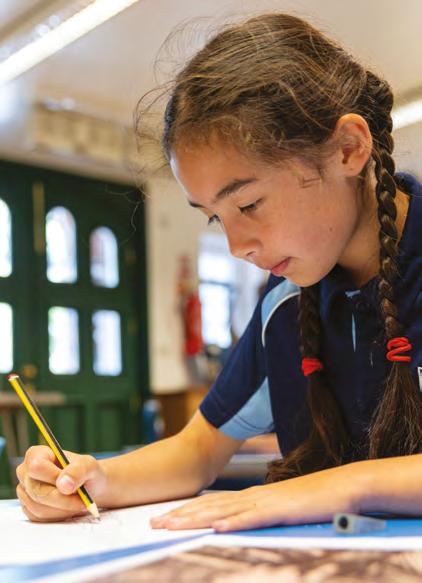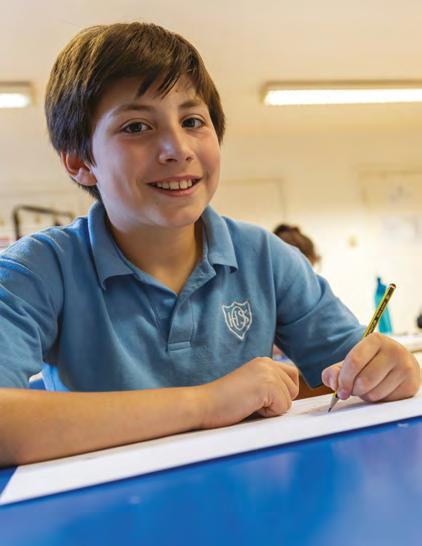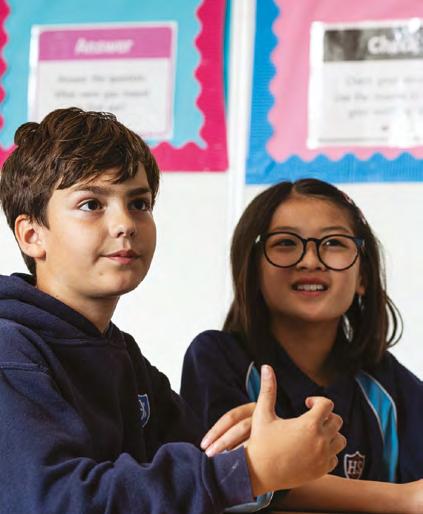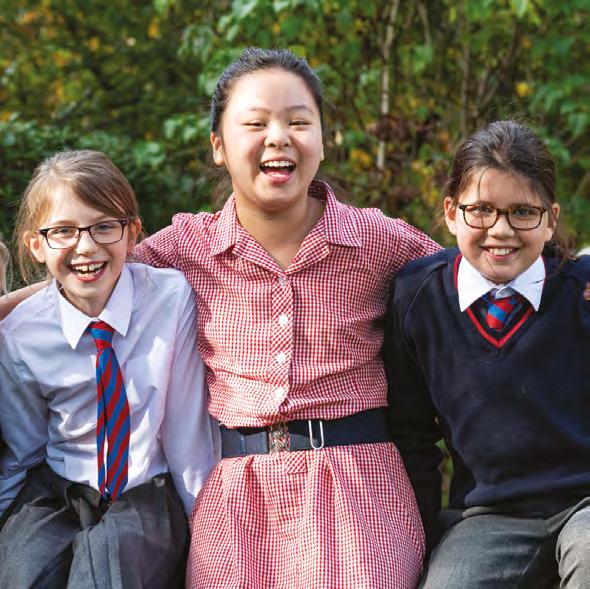Maths Science
Living Things and their Habitats
• Sorting animals into different classifications.
• Understand how the different kingdoms of life are identified.
• Knowledge of the processes to carry out a fair investigation.
• Research skills into how living things are classified into different groups.
• Differences between different types of vertebrates
• Examples of organisms and microorganisms that live in soil.
• Describing the different types of fungi.
Ideas for Home
• Regular exam practice papers
• Regular mental maths exercises
• Schofield & Sims calculations
• Times Tables Rock Stars
Electricity
• Investigating electrical circuits
• Investigating what affects the output of a circuit.
• Systematically investigating components within a circuit to design a set of traffic lights.
• Explaining how variable resistors can work like a switch.
Ideas for Home
• Visit local wetland centres and local parks.
• Pond dipping.
• Build your own traffic lights.
2
English
Reading
(independent, paired, group and shared, adding expression and intonation)
Writing
(fiction, non-fiction, instructions and explanations, poetry, descriptive writing, biographies and focusing on imagination)
Technical English:
• Sentence completion
• Spellings (high-frequency words, prefixes, suffixes, spelling rules, homophones, antonyms, synonyms, word groups)
• Punctuation (capital letters; full stops, exclamation marks and question marks; commas in lists to clarify meaning; inverted commas; apostrophes to mark possession; apostrophes to mark contracted forms; brackets and parentheses; colons; semi-colons; single dashes)
• Grammar (word class, coordinating and subordinating conjunctions, types of clauses, use of tenses)
Comprehension
• Purpose/ audience/ structure
• Using clues to find definitions.
• Summarising key ideas
• Retrieving specific information
• Inference and deduction
• Forming opinions
• Making predictions
• Analysing language
• Facts/ opinion
• Identifying bias
Speaking and Listening
(interview preparation)
• Examination practice papers for the 11+

Ideas for Home
• Regular exam practice papers
• Regular spelling practice using www.spellingframe.co.uk
• Reading a range of texts
3 CURRICULUM OVERVIEW: FORM 6
History
What is the Roman legacy of crime and punishment?
• How did the legal system work in Anglo-Saxon Britain and how does it compare with the modern British justice system?
• Why were they called the torturing Tudors?
• The Highwayman: Hero or Villain?
• What was life like in a Victorian prison?
• Has the way we catch and punish criminals improved in the last 100 years?
Ideas for Home
• Independent research
Geography


Contrasting Environments
• To understand the characteristics of the different environments around the world
• To understand the dangers of avalanches in a mountain environment
• To understand how plants and animals are adapted to life in an arid environment.
• To understand how climate change affects the polar regions.
• To understand what different plants and animals live in the tropical rainforest.
Ideas for Home
• Independent research
4
• Pupils will learn about space, line and lettering and design an inspirational quote poster.
• Christmas card project - Children will create a piece of artwork which will be used for the annual Christmas card fundraiser.
• To learn about Matisse and his paper cutouts and create a collage using scissors and coloured paper.
• Continued learning about lettering, space and texture and create a graffiti tag.
• To learn about line and symmetry and use it to draw and paint a Mexican sugar skull.
Digital images and documents
Creating digital products for a fictitious technology shop.
• Understanding the purpose of a digital product and how to make the document suitable for purpose.
• Using a variety of software to create the products, understanding why we use different software.
• Creating an electronic portfolio and applying good design.
Coding using Scratch
• Pupils will design a game for a specific purpose linked to their technology shop.
• Pupils will code their game in Scratch, considering iteration, variable and selection.
• Be able to evaluate their game and make improvements.
Music for Motion Picture
• To listen and evaluate different pieces of film music.
• Identify key musical features of famous film music.
Art/ Design Technology Computing Music MFL French/ Spanish
• To compose film music for a silent film clip.
• To evaluate and appraise own compositions.
Singing for Performance
• To learn songs for Christmas performances
• To sing as an ensemble with an awareness of tone, dynamics, articulation, and diction
To speak, read and understand a complex sentence by manipulating language using a language scaffold or a bi-lingual dictionary.
To apply basic grammatical concepts
To engage in a short conversation using familiar language
To write complex familiar sentences from memory with understandable accuracy
• Introductions
• Character and physical description
• Writing letters to our French pen pals
• European Day of Languages
• Personal pronouns
No drama in Autumn term.
• High frequency verbs present tense
5 Drama
CURRICULUM OVERVIEW: FORM 6
PSHCEE
BM (Being Me in My World)
‘Who am I and how do I fit?’
• Identify goals for this year, understanding fears and worries about the future and know how to express them.
• Feeling welcomed and valued and know how to make others feel the same.
• Knowing that there are universal rights for all children but for many children these rights are not met.
• Understanding our own wants and needs and be able to compare these with children in different communities.
• Understanding that individual actions affect other people locally and globally.
• Making choices about individuals’ own behaviour
• Understand how rewards and consequences feel and to understand how these relate to individual rights and responsibilities.
• Understanding how an individual’s behaviour can impact on a group.
• Understanding how democracy and having a voice benefits the school community.
CD (Celebrating Difference)
Respect for similarity and difference. Anti-bullying and being unique.
• Understanding there are different perceptions about what normal means.
• Understanding how being different could affect someone’s life.
• Being able to explain some of the ways in which one person or a group can have power over another.
• To know some of the reasons why people use bullying behaviours.
• Be able to give examples of people with disabilities who lead amazing lives and appreciate people for who they are.
• To be able to explain ways in which difference can be a source of conflict and a cause for celebration.
• Explain a range of strategies for managing one’s own feelings in bullying situations and for problemsolving when a part of one.
Religious Studies
Christianity
• Understand the Christian teachings about:
• Eternity
• The different types of love (agape, philios, storge etc…)
• Marriage
• Forgiveness
• Living a good life
• Compare and contrast the teachings of Christianity with other belief systems.
Christmas
• Understand the key teachings about:
• The incarnation
• Mary
• Jesus
• Learn and reflect on the meaning of the nativity story.
• Evaluate the claims of Jesus’ divinity
6
Games
Netball (girls)
• Ball skills- including chest, overhead, and shoulder passes.
• Footwork
• Attacking principles, including centre pass set play and movement in the circle.
• Defending principles in transition and in the circle.
• Positions and rules for 5 and 7 a-side.
• Shooting technique
• Competitive matches and tournaments,
Football (boys)
• To practise ball mastery skills, including dribbling, kicking, stopping and shooting.
• To demonstrate attacking and defending in football.
• Practise shooting and goal keeping.
• Understand more complex rules of football.
• Competitive matches and tournaments
*Children will have the chance to play the opposing sports later in the term and in squads along with the opportunity to participate in some matches.
PE
Alternative Sports
• Introduction to a new sport each week
• Gaining an understanding of rules and skills needed in different sports.

• Attacking principles and defending principles
• Tactical awareness, game play and umpiring
Gymnastics
• Students will work both individually, in pairs and in small groups to master the following:
• Back to Basics
• Cartwheels/ basic vaults
• Handstands
• Rolls
• Balances
• Routines and sequences
7 CURRICULUM OVERVIEW: FORM 6
Orchard House School 16 Newton Grove, Chiswick London , W4 1LB





